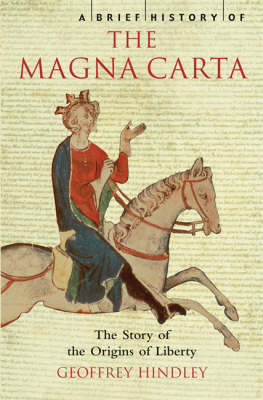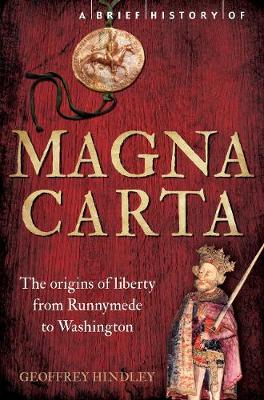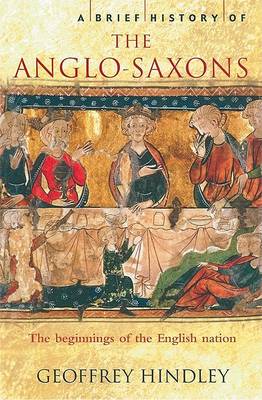Brief Histories
4 total works
Why did the medieval Church bless William of Normandy's invasion of Christian England in 1066 and authorise cultural genocide in Provence? How could a Christian army sack Christian Constantinople in 1204? Why did thousands of ordinary men and women, led by knights and ladies, kings and queens, embark on campaigns of fanatical conquest in the world of Islam? The word 'Crusade' came later, but the concept of a 'war for the faith' is an ancient one.
Geoffrey Hindley instructively unravels the story of the Christian military expeditions that have perturbed European history, troubled Christian consciences and embittered Muslim attitudes towards the West. He offers a lively record of the Crusades, from the Middle East to the pagan Baltic, and fascinating portraits of the major personalities, from Godfrey of Bouillon, the first Latin ruler of Jerusalem, to Etienne, the visionary French peasant boy who inspired the tragic Children's Crusade. Addressing questions rarely considered, Hindley sheds new light on pressing issues surrounding religious division and shows how the Crusades have helped to shape the modern world and relations between Christian and Muslim countries to this day.
2015 marks the 800th anniversary of the signing of Magna Carta, the influence of which is still felt today around the world. In 1215 the barons of England forced King John to sign a revolutionary document which would change the political landscape not only of thirteenth-century Britain, but of the modern world. Magna Carta was the forerunner of the constitution that limited the powers of the crown and its echoes can be found in the seventeenth-century Civil Wars, the struggles for American Independence, the work of Thomas Paine and in the bedrock constitutional legislation of just about every democratic country today.
As civil Liberties and the rule of law are increasingly brought into question throughout the world, leading medieval historian Geoffrey Hindley breathes vivid life into the story behind the signing of Magna Carta, and reveals the undiminished significance of this ancient document in today's world.
Starting AD 400 (around the time of their invasion of England) and running through to the 1100s (the 'Aftermath'), historian Geoffrey Hindley shows the Anglo-Saxons as formative in the history not only of England but also of Europe.
The society inspired by the warrior world of the Old English poem Beowulf saw England become the world's first nation state and Europe's first country to conduct affairs in its own language, and Bede and Boniface of Wessex establish the dating convention we still use today. Including all the latest research, this is a fascinating assessment of a vital historical period.



